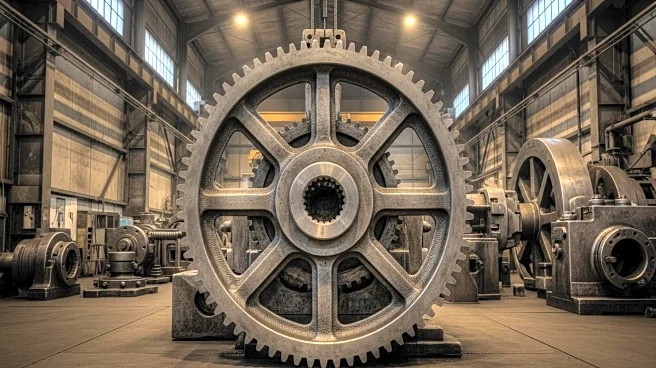What is the story about?
What's Happening?
ArcelorMittal South Africa (AMSA) is facing significant job cuts, with plans to lay off over 4,000 workers, according to the Solidarity union. This move comes as the company struggles with financial losses, having reported a half-year headline loss of 1 billion rand ($56 million) due to low sales volumes and prices. AMSA had previously announced the closure of its long steel plants at Newcastle and Vereeniging, affecting 3,500 jobs. The job cuts have now expanded to include the Vanderbijlpark plant, AMSA's flagship operation. The company has been under pressure from weak local demand, high electricity tariffs, poor freight logistics, competition from local scrap recycling mills, and imports from China. Despite efforts to seek government intervention, including requests for lower scrap export duties and tariffs on imports, AMSA has not found a viable solution.
Why It's Important?
The planned job cuts at AMSA highlight the challenges faced by the steel industry in South Africa, which could have broader implications for the global steel market. The reduction in workforce and potential plant closures may impact steel production capacity, affecting supply chains and pricing. The situation underscores the difficulties faced by industries reliant on government support and favorable economic conditions. The job losses could have significant social and economic consequences, affecting thousands of families and local communities dependent on the steel industry for employment. The company's struggles also reflect broader issues in the South African economy, including high operational costs and competition from international markets.
What's Next?
AMSA's future actions will likely depend on ongoing discussions with the government and potential policy changes. The company may continue to seek relief through reduced export duties and tariffs, as well as favorable electricity and freight costs. The outcome of these negotiations could determine the extent of job cuts and plant closures. Stakeholders, including employees, unions, and local communities, will be closely monitoring developments, as the impact of these decisions will be far-reaching. The government may face pressure to intervene and support the industry to prevent further economic fallout.

















